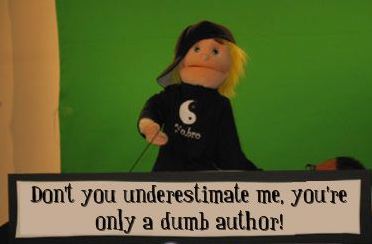1. Creating Characters
Here’s another trick that works for me, though I haven’t heard of other writers using it. When a particular character isn’t coming to life, I halt the story, lower a microphone into his or her head and write out what s/he would say for themselves in an interview.
‘Why I did this …’
‘Why I’m going to do that …’
‘Why I’m right and everyone else is wrong …’
If the biography gives definition to a character, the self-justification gives me the character’s inner feel. The reasons and excuses aren’t so important, but the perspective is. Self-justification soon becomes self-assertion, answering back against the interviewer.
Doesn’t everyone have a way of putting themselves in the right? We shape the world around us and see everything from our own centre. I really believe that’s part of being human—we’re ultimately un-put-down-able. I love my characters to be ultimately un-put-down-able!
Even apology and contrition can involve a kind of self-assertion. A character may accept the blame and condemn him/herself—but still, he or she is doing the accepting and condemning. It’s still an assertion of one’s own perspective. ‘At least I’m the one putting myself down …’
Writing out a character’s self-justification makes me treat them with proper respect. As authors, we rule our worlds, and perhaps there’s an element of the control freak in all of us. But it’s dangerous to get on top of one’s characters, because real living human beings can’t be got on top of. They always can recognise what others think of them, they can become conscious of things about themselves—and still answer back. 
A good motto for writers: never underestimate your characters. No matter how foolish or blind or unintelligent, they should never be dumb.
The self-justifications I write out for characters don’t get into my novels. They do influence a kind of scene I’m very fond of, though—namely, the scene where a character is confronted by the truth about themselves.
What emerges from these moments of self-consciousness is unpredictable: perhaps change and redemption, perhaps sheer wilful persistence—‘I am what I am’. (For example, Sir Mormus’s self-proclamation at the end of Worldshaker.) Either way, a character who rises to self-consciousness is a character who becomes bigger. Even the most whinging petty figure can achieve a kind of tragedy.
|





